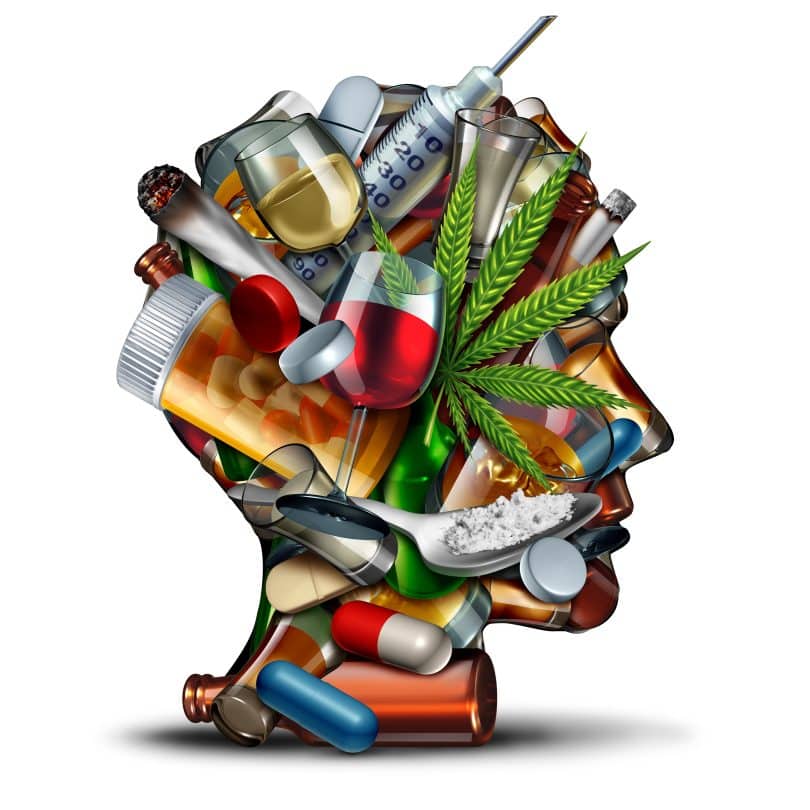One of the main reasons that drugs have such varied effects in different people, is because of drug tolerance. Some people develop a tolerance to certain drugs after long-term regular use, and others have a seemingly natural tolerance to certain substances. So how does drug tolerance actually work in the body, and how can we use this knowledge to our advantage to curate safer and more personalized drug experiences?
To stay current on everything important happening in the industry, subscribe to The Cannadelics Weekly Newsletter. Also, it’ll get you premium access to deals on cannabis flowers, vapes, edibles, and much more! We’ve also got standout offers on cannabinoids, like HHC-O, Delta 8, Delta 9 THC, Delta-10 THC, THCO, THCV, THCP & HHC, which won’t kill your bank account. Head over to our “Best-of” lists to get these deals, and remember to enjoy responsibly!
Drug Tolerance Defined
The pharmacological meaning of drug tolerance refers to a person’s decreased response to a drug or group of drugs over an extended period of time. While this is a very useful adaptive mechanism that allows our bodies to adjust to an ever-changing environment, it’s a major issue when it comes to consistency and dosing with various substances, because it means the initial dose that a patient/consumer started on is no longer working.
The only solution at that point would be to increase the dosage, but because that can work to speed up tolerance, there are a few issues when going this route including the rising cost of medication and other products (because higher dosed products often carry a higher price tag as well), difficulty filling prescriptions, and most importantly, an increased risk of possible overdose.
Tolerance-related overdose can happen one of two different ways, and it can happen whether you have a low tolerance or high one. If you have a low tolerance to drugs, then of course, too much too fast will be problematic. If you have a very high tolerance, you need more and more drugs to feel their effects. But just because you can’t feel the drugs, that doesn’t mean you can’t still experience toxicity from taking too much. So yes, there is a sort-of sweet spot when it comes to substance tolerance.
Many factors and drug-use patterns can impact tolerance such as taking a break from using the drug, changing the dosage on your own, changing the type of drug you’re on, changing how or when you take the drugs, using drugs that are less potent than what you’re used to, shortages or inconsistent access to prescriptions, and other unpredictable changes in supply and quality.
What is Cross-Tolerance?
Cross-tolerance happens when someone develops a tolerance to a drug or group of drugs after taking one with similar properties, because drugs from the same classes affect the same parts of the brain. For example, if a patient takes oxycontin and then ends up with a tolerance to other opiates as well. Serontogenic drugs (hallucinogens) also have the same effects.
Below are the most common drug classes for cross-tolerance:
Sedatives: Different categories of sedative drugs like benzodiazepines, alcohol, barbiturates, and sleep aids all act on similar receptors in the brain and thus, cross-tolerance can easily develop. It’s quite common in patients taking drugs like Xanax, Klonopin, Ambien, and so on.

Opioids: According to the Mayo Clinic, all opioids lead to cross-tolerance with other drugs within the class. This why opiate patients sometimes end up addicted to heroin, because when tolerance develops to a powerful prescription drug like Oxycontin, some believe their only option is to move on to street drugs like heroin, which obviously carries risk of arrest, overdose, and death.
Stimulants: Many stimulants are known to create cross-tolerance effects. People who use amphetamines like methamphetamine will have an increased tolerance to weaker stimulants like cocaine and ecstasy.
Psychedelics: Less known is that people can develop cross-tolerances to different psychedelics. This is because mescaline, psilocybin, LSD, DMT, ketamine, and most other hallucinogenic drugs act by modulating the serotonin pathways in our brains.
Genetics and Natural Drug Tolerance
We all know that tolerance is something that can be established the more you use something… but can we be born with a high tolerance to drugs or medications? The answer is yes. The concept of natural drug tolerance is not something new, in either clinical or recreational settings. From a more casual standpoint, if you’re a person who uses drugs, or if you hang out with people that do, you know that a seemingly inherent tolerance to substances is a very real thing. Doctors, pharmacists, and other healthcare practitioners are also very familiar with the idea.
While tolerance is different for everyone, for some people, it’s largely caused by genetic factors. Additionally, people with low body weight and either very young people, or the elderly, may have lower drug tolerances as well. But back to those genes. Our genes influence everything about us, including the number and types of receptors in our brains, how and what those receptors react to most, how quickly our bodies metabolize drugs, and how well or poorly our bodies respond to different substances in general. Utilizing genetic, environmental, and neurobiological factors in dosing is known as precision medicine.
Of course, this applies to recreational substances as well, ranging from the mild ones like caffeine, to all the different classes of drugs noted above. So, if you have a high tolerance to alcohol and drugs, you may have got that from one of your parents, and the trait may be passed down to your offspring too. Furthermore, these same factors can influence a person’s likelihood to become addicted to drugs.
For example, Nora Volkow, MD, director of the National Institute on Drug Abuse explained that “the number of a certain type of dopamine receptor, known as D2, might someday be used to predict whether someone will become addicted to alcohol, cocaine and heroin.” Brain imaging indicates that people with fewer D2 receptors are more likely to become addicted to various drugs than those with more of these receptors. “Of course, environmental factors also play a role, so propensity isn’t destiny, Volkow added. “First a person has to experiment with drugs, then he or she has to repeatedly use them. At that point, genetic vulnerability helps determine who winds up addicted.”
How This Info Can Benefit You and Your Drug Experiences
In my years of experimenting with drugs, I discovered that I personally have a high tolerance for stimulants and psychedelics, and a low tolerance for downers; especially benzodiazepines and barbiturates, but even alcohol can be questionable for me when I’ve had too much. Now, this is just me… everyone’s body is different. For example, a friend of mine (and one of our other writers here at Cannadelics) is the complete opposite. She does well with downers but can’t handle stimulants at all. Even some coffee or mountain dew is enough to have her wired.

This information about how I react to both stimulants and sedatives is very beneficial for me. Knowing the specifics about your own personal drug tolerance levels can be incredibly useful for both therapeutic and recreational reasons. For example, if you know that benzodiazepines make you extremely tired (like they do me), then you’ll know that taking Xanax or Lorazepam during the day is not a viable option for treating anxiety for a long-term period. Conversely, if you can’t handle stimulants, you may want to avoid using drugs that contain them at certain times (no coffee before bed).
And the stimulant effect can apply to psychedelics as well. Because most psychedelics act on our serotonin receptors, they can make you feel awake, alert, and sometimes jittery and anxious. For someone who doesn’t do well with stimulants, mixing certain things may be an issue. Like shrooms and cocaine, for instance.
Final Thoughts
Drug tolerance is an interesting and complex physiological mechanism that normally helps us adapt to our constantly changing environments, but can hinder us in the realm of drug use. Tolerance can be either developed or intrinsic, and knowing what class of substances your body is more likely to develop a tolerance to, can help with both medical treatment plans, as well as safer recreational drug use.
Hello readers! We appreciate you joining us at Cannadelics.com, a top choice news platform for independent coverage of the growing cannabis and psychedelics landscapes of today. Come by the site whenever possible for updates on current and world-changing events, and head over to the Cannadelics Weekly Newsletter, so you’re always up on what’s going down.









